
by Allen Reynolds, UrbanFaith Editor | Nov 6, 2022 | Commentary, Headline News, Social Justice |

Every two years in the United States of America we have federal, state, and local midterm elections. And every year we hear from politicians or administrative officials about why we should vote for them (or not vote for their opponent). The people elected during midterms become the leaders who manage our communities’ money, advocate for our well being, determine how our justice system works, shape our education systems, provide for our safety, dispose of our waste, maintain our environment, and more. Local and state elections are the most impactful on our day to day lives and yet few of us even know who our representatives, administrators, or public officials are.
Our democracy is at stake. Politicians, media outlets, public figures, scholars, researchers, activists, and others have all sounded the alarm. There are thousands of people across the country working in coordinated ways to undermine our system of elections, take control of our local governments, and advocate for political violence. Many of those who are part of this movement claim to be Christians. There are politicians running and influencers on social media who have convinced millions of Americans to place greater faith in lies and liars than in Christ Himself. They devote their energy toward upholding election lies and won’t trust anyone that doesn’t agree with them. They are unmoved by evidence, only valuing the echoes of affirmation in their social circles.They have created a religion of suspicion and their faith is distrust. Believers must stand in contrast with the false followers of Jesus who are really white Christian nationalists and make sure to vote for leaders who represent justice, equality, value, and care for all people regardless of their background. We cannot support or endorse hate, fear, and violence in the name of our Lord and call it faithfulness. We have learned we cannot be slaves to single issues at the federal level and neglect policies and positions at the local and state levels. We have to vote in midterm elections like this one, or our votes may become truly meaningless in the future. It is only pride that keeps us from seeing that if fascist governments can rise in other other countries that it can happen here if we do not participate.
As a voters we fall easily and deeply into tribalism, the identification and support of leaders we feel like are part of “our group.” Unfortunately when we do not have a president to vote for, most of us don’t vote at all. According to Pew Research Center 62% of people of voting age turned out in the 2020 elections, which was a record breaking number, mostly fueled by the bitter cultural wars in the Presidential race. But consider that means that 38% of people who could vote, did not. In midterm elections the numbers are usually under 50%. Literally the minority of people elect leaders who impact all of our lives. And yet when we don’t vote or care about who to vote fore beyond the top officials, we miss out on a critical piece of our democracy.
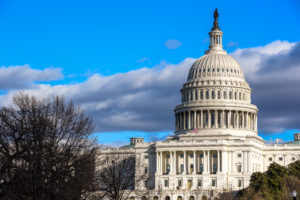
West side of the Capitol Building at Capitol Hill in Washington DC. Daily photos in the afternoon, good for late autumn, winter and early spring illustration
We are engaged and fervent whenever we elect the president, even though most of us will never meet them and rarely understand their impact on our day to day lives. A president is a symbolic leader for many of us, representing our collective hopes, aspirations, and ultimate accountability. But a president can make none of the changes we imagine for ourselves and our communities without the cooperation and support of the legislature. The laws passed by legislative bodies are ineffective when the courts don’t enforce them. Our entire government is built on cooperation between branches and accountability through voting, both of which are under greater threat than many of us could imagine. We must vote in midterm elections, otherwise our desires to see flourishing in our communities will remain only dreams. We need to know who our tax assessor is, our city council members, our sheriffs, our judges, our attorney generals, our state representatives, our county officials, our congresspeople, and our governors.
As people of faith we have an even greater responsibility to be informed voters and to vote. The United States of America is not the Kingdom of God. Jesus is the eternal King of the Kingdom and He is not up for election. No leader can serve as proxy for Jesus over our lives or our nation. We are not voting to put Jesus Christ in office. He is already reigning over everything by His own power. But we can absolutely elect leaders who agree with our Christian principles of justice, help for the poor, safety for children, value for all lives, and care for the environment. We must look to our faith to inform what matters in our personal politics, and value other people’s faith or lack of faith enough to care for them too. Jesus taught us to seek justice for those who are different from us. Jesus taught us to hold leaders accountable. Jesus taught us to pay special attention poor people, homeless people, those from different countries, those with disabilities, those with food insecurity, and young people. Jesus taught us to love our neighbors as we love ourselves. Which means we have to vote for leaders and policies that will positively impact not just us, but members of our community.
We should vote because we need more good in our government. And we should know our leaders from city hall to capitol hill because their decisions impact us at home, work, school, church, in the park, in the street, in the store, and everywhere else in this country.
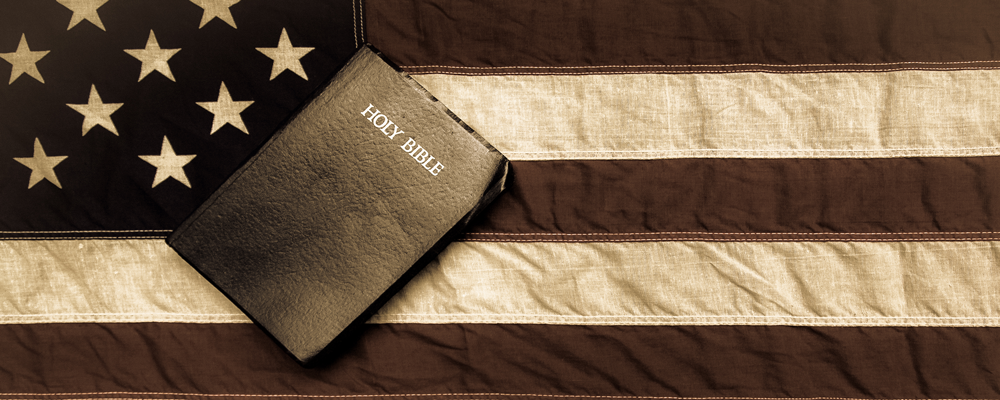
by Edward Ford Jr. | Oct 18, 2022 | Commentary, Headline News, Social Justice |

As a Christian, you may ask yourself at times how to live out your faith in the public sphere. Injustices are occurring in the world around us every day. Because your faith doesn’t allow you to ignore these happenings, you feel a strong desire from within to take productive action. Some people choose to take harmful action but your desire is to take action that heals, that works towards justice and that shows God’s love for humanity. This is what we should aim to do, and my goal is to help you begin to think of ways you can live out your faith while having a positive impact on the world around you.
We are called to live out our faith and have an impact on society. A verse in the scriptures that reiterates this calling is Micah 6:8, which says “He has told you, O man, what is good; and what does the Lord require of you but to do justice, and to love kindness, and to walk humbly with your God?” In this verse Micah points out what God requires of us. We are to do Justice. How are we “to do Justice”? What does that mean for us? Justice comes in different forms. We can do Justice by lending help to the parent who is struggling to put food on the table and is earning just enough to put a roof over their children’s heads. We can lend our help by offering to buy them groceries, maybe filling up their car with gas or connecting them to resources that can give them financial assistance and build their credit. We can do justice by assisting the homeless in our community to find shelter and get them connected to resources that will supply them with food and daily necessities. We can do justice by giving our time, talent and treasure to community organizations that give back to youth, those who are less fortunate and those who are struggling to make it each day.

These are some ways we can do justice on an individual basis. To those who already do such acts regularly, I commend you. Continue this good work. However, there’s also a need for justice on a systemic level within our society. As Christians, we are to follow the example of Christ, and stand beside those who are looked down on and mistreated by society. We have the capability to do justice on a systemic level by advocating for changes within our systems. We should advocate for opportunities for disadvantaged youth. Whether that be through mentorship programs, academic tutoring, pouring more resources into historically underfunded schools and giving families more choices as to where their child can attend. We should advocate for those who are battling unfair sentences in the justice system and creating opportunities for those who have paid their debt to society, in an effort to reduce recidivism rates. We should aim to provide more accessible opportunities for employment, educational opportunities, and programs for financial and civic literacy once they are released. More people should focus on advocating for those struggling with mental health issues and substance abuse. These are initiatives that would exhibit justice as Micah 6:8 led us to do.
Our participation in advocating for policy and systemic change in the public sphere is crucial. Many people believe their voice doesn’t matter, and as a result they don’t bother to vote or advocate for change. I can understand why many feel this way. However, inaction by good hearted people doesn’t get us further towards justice at all. Our government is supposed to be by and for the people. That means we the people of the United States have a voice and can move our government through civic engagement to reform laws and systems to deliver true justice. We can have a great impact especially on a local level. For example, after the terrible deaths of George Floyd and Breonna Taylor many cities across the country were pressed by citizens to take action against not only police brutality but racial injustice on a broad systemic level. That means in education, voting, criminal justice, and especially public health as the COVID-19 pandemic exposed the inequities in our health care system. With much to be addressed U.S. cities and state governments passed their own policies in an attempt to tackle racial injustice. In my home City of Middletown, CT where I am a member of the City Council, we decided to establish a Task Force on Anti-Racism. This Task Force was given the charge to find policy solutions to systemic racism wherever it exists under our jurisdiction. My colleagues and I received numerous emails from residents calling for change. The establishment of the Task Force was a response to residents’ call to action and would be the beginning of furthering justice within our own community. This is one example of how people can make a difference and move our government from stagnation and lip service to action and moving in the right direction. I encourage you to believe that your voice matters. Someone is waiting for you to stand up for the cause of justice.
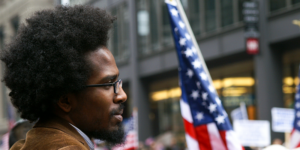
With myriad issues that need to be addressed it’s easy to feel overwhelmed. You don’t have to figure out how you will be an advocate for all of them. I encourage you to look at the example of Christ. He advocated for those who were hungry, sick, outcasts and shamed. He even advocated for you before you were born so that you may have life more abundantly. If you use your time and energy each day advocating for justice, you are advocating for those who are facing current circumstances as well as generations to come. Remember, to do justice is to take action that creates a society where everyone has the opportunities, tools and resources to fulfill their God-given potential. Justice can be restorative instead of further tearing individuals down.
I focused in the previous passages on how we “do justice.” However, those actions are to love kindness and walk humbly as well. When we reach out our hand to help and advocate for others who society would rather turn their backs on, we extend kindness. When we set aside our pride and consider the circumstances of others instead of solely focusing on our own, we begin to walk humbly. I challenge you to think about what issues in your community you can begin to advocate for that would further the cause of justice. What Town Hall meetings can you attend to advocate for justice? What issues can you write your Legislator or Mayor about? If you don’t know who these individuals are, I encourage you to research them. As you begin to walk in the requirements of Micah 6:8, you will be living out your faith in the public sphere.
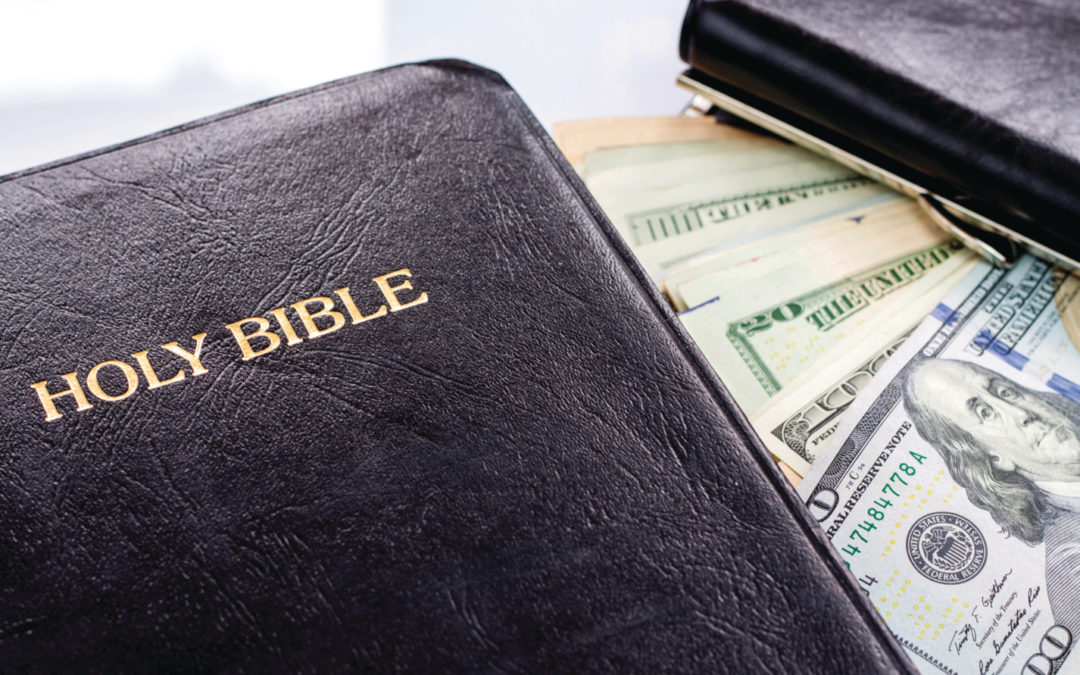
by Mwikali Munyao | Mar 7, 2022 | Commentary, Headline News, Prayers & Devotionals |
6 So King Darius issued orders that a search be made in the Babylonian archives, which were stored in the treasury. 2 But it was at the fortress at Ecbatana in the province of Media that a scroll was found. This is what it said:
3 “In the first year of King Cyrus’s reign, a decree was sent out concerning the Temple of God at Jerusalem.
“Let the Temple be rebuilt on the site where Jews used to offer their sacrifices, using the original foundations. Its height will be ninety feet, and its width will be ninety feet. 4 Every three layers of specially prepared stones will be topped by a layer of timber. All expenses will be paid by the royal treasury. 5 Furthermore, the gold and silver cups, which were taken to Babylon by Nebuchadnezzar from the Temple of God in Jerusalem, must be returned to Jerusalem and put back where they belong. Let them be taken back to the Temple of God.”
6 So King Darius sent this message:
“Now therefore, Tattenai, governor of the province west of the Euphrates River, and Shethar-bozenai, and your colleagues and other officials west of the Euphrates River—stay away from there! 7 Do not disturb the construction of the Temple of God. Let it be rebuilt on its original site, and do not hinder the governor of Judah and the elders of the Jews in their work.
8 “Moreover, I hereby decree that you are to help these elders of the Jews as they rebuild this Temple of God. You must pay the full construction costs, without delay, from my taxes collected in the province west of the Euphrates River so that the work will not be interrupted.
9 “Give the priests in Jerusalem whatever is needed in the way of young bulls, rams, and male lambs for the burnt offerings presented to the God of heaven. And without fail, provide them with as much wheat, salt, wine, and olive oil as they need each day. 10 Then they will be able to offer acceptable sacrifices to the God of heaven and pray for the welfare of the king and his sons.
11 “Those who violate this decree in any way will have a beam pulled from their house. Then they will be lifted up and impaled on it, and their house will be reduced to a pile of rubble. 12 May the God who has chosen the city of Jerusalem as the place to honor his name destroy any king or nation that violates this command and destroys this Temple.
“I, Darius, have issued this decree. Let it be obeyed with all diligence.”
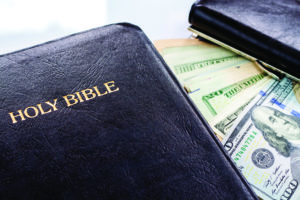
There is a powerful thing that happens when God is honored and revered. Honoring God’s presence in a city, country or human life, provokes God to move. King Darius in Ezra 6:1-12 declared the construction of the house of God to be built with his full endorsement.
He covered the full expense from the royal treasury and ensured the work would not stop until completion. As a man of authority, he recognized he was limited to what he could do. We see his humility in Ezra 6:10 where he requests for prayers for his wellbeing and his sons.
Many times, we limit God’s provision because we prepare our hearts to receive rejection. We take on this posture to avoid feeling disappointed. However, there are seasons in our lives when God sends people who have the ability to change our lives completely by their influence, authority and endorsement.
God sent providers are not concerned with how many years you have been dealing with your trial, or test, all they want to see is success move in your life and a fast pace. God desires to send great men and women who recognize His sovereignty but are humble enough to admit their need for Him.
God responds to honor from anyone. Sometimes we struggle with the fact that we serve a God who is not biased. I would dare ask you, would you desire for your breakthrough or blessing to have bias? It shouldn’t matter how God helps you, all you want is the manifestation of what God has for you. That is the power of honor.
Honoring God reminds us that He will use anyone or anything to accomplish His will for our lives. Our posture is to keep our heart and minds in a place of humility, and prepare ourselves to move quickly when the blessing or the answer is provided.
As you believe God to make a way for you, deal with any bias in your life that would make you sabotage answered prayer or quick manifested breakthroughs that show up in an unexpected way.
The answer is coming, the provision is coming, believe God and expect. When it shows up, as an act of faith, move in diligence and watch God be God.
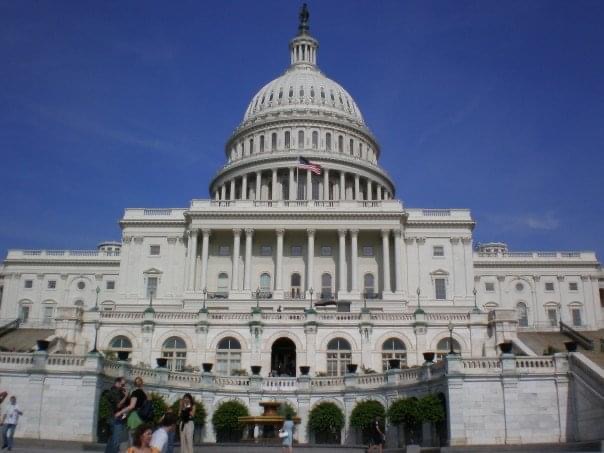
by Edward Ford Jr. | Aug 22, 2021 | Headline News, Social Justice |
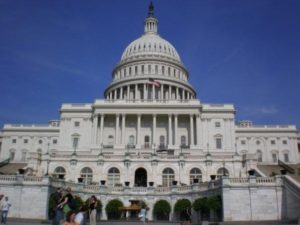 How can policy help us create a society that reflects God’s heart? This is a critical question that Christians from all backgrounds and denominations should be asking ourselves today. To begin answering this question, I’d like to first take a look at a passage from the book of Matthew 25: 34-40. Here Jesus, as usual, says something profound and which applies to our society today. He says this, “Then the King will say to those on His right hand, ‘Come you blessed of My Father, inherit the kingdom prepared for you from the creation of the world. For I was hungry, and you fed me. I was thirsty, and you gave me a drink. I was a stranger and you invited me into your home. I was naked, and you gave me clothing. I was sick, and you cared for me. I was in prison, and you visited me.’ Then these righteous ones will reply, ‘Lord when did we ever see you hungry and feed you? Or thirsty and give you something to drink? Or a stranger and show you hospitality? Or naked and give you clothing? When did we ever see you sick or in prison and visit you?’ And the King will say, ‘I tell you the truth, when you did it to one of the least of these my brothers and sisters, you were doing it to me!’” In this passage, Jesus sets the framework for the justice work that needs to be done within our society. In meeting the needs of “the least of these” we are serving God and people by committing true acts of justice.
How can policy help us create a society that reflects God’s heart? This is a critical question that Christians from all backgrounds and denominations should be asking ourselves today. To begin answering this question, I’d like to first take a look at a passage from the book of Matthew 25: 34-40. Here Jesus, as usual, says something profound and which applies to our society today. He says this, “Then the King will say to those on His right hand, ‘Come you blessed of My Father, inherit the kingdom prepared for you from the creation of the world. For I was hungry, and you fed me. I was thirsty, and you gave me a drink. I was a stranger and you invited me into your home. I was naked, and you gave me clothing. I was sick, and you cared for me. I was in prison, and you visited me.’ Then these righteous ones will reply, ‘Lord when did we ever see you hungry and feed you? Or thirsty and give you something to drink? Or a stranger and show you hospitality? Or naked and give you clothing? When did we ever see you sick or in prison and visit you?’ And the King will say, ‘I tell you the truth, when you did it to one of the least of these my brothers and sisters, you were doing it to me!’” In this passage, Jesus sets the framework for the justice work that needs to be done within our society. In meeting the needs of “the least of these” we are serving God and people by committing true acts of justice.
To state a hard and unfortunate truth, we live in a society that has done much to marginalize and disadvantage many of God’s children. Over the course of American history, we have seen the U.S. government deliberately take legislative and administrative action to oppress entire groups of people in a response to certain cultural attitudes and misguided beliefs. Policies throughout our history have been used to remove Indigenous people from their homes. Jim Crow policies have caused much damage, distress and trauma to the black community and communities of color. I pose the following question to you. If policy can be used to harm, then why can’t it be used to heal? As Christians, we should be pushing our government to enact policies that help “the least of these”.
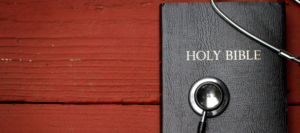 When Jesus says in Matthew 25, “I was hungry and you fed me” it should make us think about nutrition policy and how we can eradicate food deserts within our communities. Through policies and programs that will encourage agricultural growth and ensure that disadvantaged communities receive fresh foods, we could feed entire neighborhoods of children and families. We should seek funding and partners in building grocery stores that stock fresh produce in the heart of urban areas. When Jesus says “I was a stranger and you invited me into your home.” It should jolt our minds towards equitable housing policy and how we can provide stable housing for those who are battling homelessness. When Jesus says “I was sick, and you cared for me.” It makes me think of how we can expand access to affordable healthcare to more individuals and families. When He says “I was in prison, and you visited me” it brings to mind potential second-chance policies and programs which can be utilized to rehabilitate and integrate prisoners back into society in a productive way.
When Jesus says in Matthew 25, “I was hungry and you fed me” it should make us think about nutrition policy and how we can eradicate food deserts within our communities. Through policies and programs that will encourage agricultural growth and ensure that disadvantaged communities receive fresh foods, we could feed entire neighborhoods of children and families. We should seek funding and partners in building grocery stores that stock fresh produce in the heart of urban areas. When Jesus says “I was a stranger and you invited me into your home.” It should jolt our minds towards equitable housing policy and how we can provide stable housing for those who are battling homelessness. When Jesus says “I was sick, and you cared for me.” It makes me think of how we can expand access to affordable healthcare to more individuals and families. When He says “I was in prison, and you visited me” it brings to mind potential second-chance policies and programs which can be utilized to rehabilitate and integrate prisoners back into society in a productive way.
 Let’s take a further look at our Justice System. Over the past few decades policies enacted at multiple levels of government have created systemic injustices such as the School-to-Prison Pipeline and Mass Incarceration, just to name two. The War on Drugs in the 1980’s followed by the “tough on crime” policies and rhetoric from politicians on both sides of the political aisle resulted in a disproportionate amount of black and brown people populating our prison systems. According to the Federal Bureau of Prisons, as of July 2021, 38.2% of inmates today are Black. Why is that number disproportionate? Because the latest Census data place the total number of African Americans in the United States at just over 13%. These statistics should alarm anyone who wishes to see the fair and equal treatment of people in our society. The Crack Epidemic devastated Urban America. Instead of providing rehabilitation, mental health and addiction services the government decided to lock people up and give them a mandatory minimum sentence. In most cases if not all, individuals of color would receive harsher penalties than their white counterparts for the same offense. This was a clear sign of institutionalized racism and implicit bias running rampant within our justice system.
Let’s take a further look at our Justice System. Over the past few decades policies enacted at multiple levels of government have created systemic injustices such as the School-to-Prison Pipeline and Mass Incarceration, just to name two. The War on Drugs in the 1980’s followed by the “tough on crime” policies and rhetoric from politicians on both sides of the political aisle resulted in a disproportionate amount of black and brown people populating our prison systems. According to the Federal Bureau of Prisons, as of July 2021, 38.2% of inmates today are Black. Why is that number disproportionate? Because the latest Census data place the total number of African Americans in the United States at just over 13%. These statistics should alarm anyone who wishes to see the fair and equal treatment of people in our society. The Crack Epidemic devastated Urban America. Instead of providing rehabilitation, mental health and addiction services the government decided to lock people up and give them a mandatory minimum sentence. In most cases if not all, individuals of color would receive harsher penalties than their white counterparts for the same offense. This was a clear sign of institutionalized racism and implicit bias running rampant within our justice system.
There are myriad of systemic issues we could expound upon in much detail. However, the previous brief example of our justice system should reveal that institutionalized and systemic injustice exists within our society. The good news is that since institutionalized injustice was something that was constructed, it can now be deconstructed. That does not mean we throw away every law and system we have. That would not be prudent nor realistic. Rather, we should combat the policies that went into effect to cause the injustices we see within our systems. We need to work towards making our systems work for everyone and not only work for certain groups based upon race, gender or socio-economic status. We must combat homelessness and the opioid crisis we are facing today but do so in a way that’s rehabilitative instead of punishment focused, which, was the mistake made in the 1980s and 90s. We must strive to give our children more opportunity to attend the school that would best meet their needs and propel them into their future. We should put first the needs of those who are less fortunate instead of catering to the extremely wealthy. We must keep pushing for everyone to have access to quality and affordable healthcare, as healthcare is a human right and not a privilege to be earned. We need to push for laws that will protect the right to vote instead of effectively disenfranchising people and pushing them out of the electoral process.
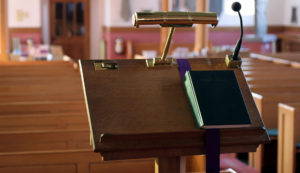
“A modern wooden church pulpit with microphone, brass lamp and closed bible.This file has been updated and replaced after its original upload as there was a problem with a square around the microphone which has now been resolved.A similar new image from the same location is now also available in a larger size:”
In American society, each of us have a role to play in creating a more perfect union. Our churches play a significant a role. In my opinion, the church should be leading the charge in advocating for policies that reflect God’s heart on every critical issue of our day; not only a select one or two. Our government and institutions react to what “We the People” demand. Clergy and Civil Rights leaders of the mid-20th century such as Dr. Martin Luther King Jr. and so many others demanded change and were able to accomplish it. As Reverend Dr. King once stated “The arc of the moral universe is long, but it bends toward justice.” Through enacting policies that address the critical needs of everyday people and “the least of these” we can create a more equitable and just society. We can create a society which I strongly believe reflects God’s Heart.
Sources:
https://www.census.gov/quickfacts/fact/table/US/PST045219
https://www.bop.gov/about/statistics/statistics_inmate_race.jsp
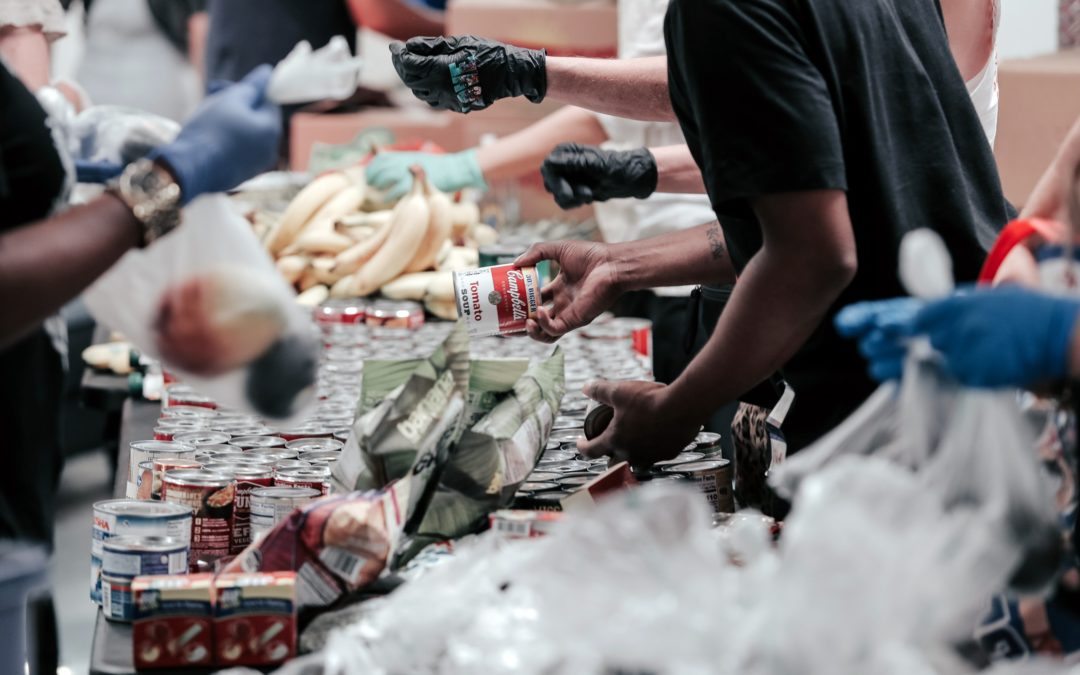
by Michael Wear, RNS | May 11, 2021 | Commentary, Headline News |
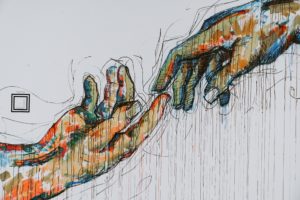 (RNS) — In a period of significant pressure on our democracy, our health and our overall well-being as a people, faith has provided a hidden infrastructure that has held America together. We miss out on much good when we do not recognize the role of faith and religious institutions in our communities.
(RNS) — In a period of significant pressure on our democracy, our health and our overall well-being as a people, faith has provided a hidden infrastructure that has held America together. We miss out on much good when we do not recognize the role of faith and religious institutions in our communities.
Last month, the Bridgespan Group released a report confirming what many of us already knew: While faith-inspired organizations, congregations and individuals make up a large percentage of America’s civic and social landscape — especially when it comes to providing aid to low-income people and those on the margins — they are significantly underrepresented and overlooked by philanthropic institutions who fund in these areas. Although faith is often in the headlines as a subject of political intrigue and a tool of partisan warfare, in the lives of millions of Americans, faith is felt closer to home, helping them to survive and make it week to week, day to day.
If you’re not familiar with the basic state of play, the findings of the Bridgespan Group might strike you as something more problematic than simply a missed opportunity. The report finds that “faith-inspired organizations account for 40 percent of social safety net spending across a sample of six cities, which vary in size and demographics. Yet, while some individual philanthropists and community foundations have recognized faith-inspired organizations as platforms for impact, that perspective has not translated into funding from the largest institutional philanthropies — particularly those seeking to address the effects of poverty and injustice.”
The report quotes Kashif Shaikh, co-founder and executive director of the Pillars Fund, a grantmaking organization that invests in American Muslim organizations, who rightly points out: “Secularism is the dominant narrative in the U.S., but often less so in vulnerable communities, in my experience. It’s a disservice to not even acknowledge it.”
Indeed, while it is certainly within the rights of philanthropic institutions to “not do religion,” such an approach undermines any meaningful, holistic commitment to community or place-based philanthropy in much of this country and in many places around the world. At best, a categorical rejection of religious engagement among institutions working in significantly religious communities amounts to an acknowledgment of an organizational deficiency. At worst, it adds up to a willful act of disruption and disrespect for the values, beliefs and culture of the communities that are “served.”
The problem is not just in philanthropy. In politics and public life, faith is often viewed as a sword or a shield for one’s own agenda. Religious communities are too rarely considered on their own terms, categorized instead as political foe or ally. This dynamic contributed to an unfortunate and harmful tenor of conflict between some governments and religious communities as we sought to mitigate COVID-19. These conflicts emerged, in part, because many elected officials viewed religious communities as a problem to solve rather than a potential partner. Politicians need to start viewing faith communities as not just sources of votes, but sources of wisdom and expertise.
Philanthropy for Active Civic Engagement (PACE) detected a lack of understanding for how faith and civic health are tied together, and in particular, how faith communities are helping people build relationships and work together across difference. In 2019, they launched a funding and learning initiative, Faith In/And Democracy, to support faith-inspired organizations and efforts that are helping to hold our communities and our democracy together.
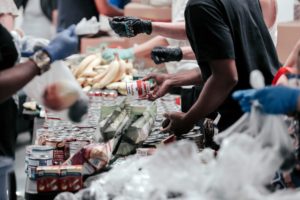
As an adviser to this program, I have been able to see the tireless, often thankless, work grantees of the program have advanced. We set out to determine if there was a distinct field of faith organizations and actors supporting our civic life, and our efforts have been met with a resounding “yes.” In its pilot year, over 130 qualified organizations applied to the program, and five were selected to participate in a robust learning community that included a range of advisers as well as philanthropic leaders committed to this work. Together, we grappled with what COVID-19 might mean for our grantees’ work, and we saw up close how they discovered creative ways to persist in their mission despite numerous roadblocks. During an election year when some sought to stir up religious resentment and conflict, our grantees were working to strengthen our democracy and build bridges of faith between disparate communities.
Through the crises of this year and my experiences working in the White House under President Obama, I have come to rely on the fact that if there is a crisis or challenge in the news, there are people of faith at work to address it for the common good. Faith is always at work.
As we turn our focus from lockdowns to vaccinations, public officials are turning to religious communities for support. In recent weeks, Dr. Francis Collins and Dr. Anthony Fauci participated in a service with D.C.-area clergy focused on the vaccine. Dr. Fauci has referred to the imperative to get adults vaccinated as a “‘love thy neighbor’ opportunity.” After relative dormancy during the Trump years, President Biden has reestablished and reinvigorated the White House Office of Faith-based and Neighborhood Partnerships, which should ensure the federal government is able to effectively partner with the faith community to keep the national response to COVID-19 on track.
If respected, valued and included, people of faith and religious institutions can be partners on so many of the issues at the top of the national agenda. For example, the Biden administration should not merely welcome the support of people of faith for the anti-poverty provisions in the American Rescue Plan, but rather, invite faith leaders to champion the provisions, to claim them as a harbinger of a new national commitment to better care for the “least of these.”
Likewise, we cannot have a conversation about strengthening our democracy without recognizing the role of faith as a molder of civic character and a shaper of civic consciousness. Faith communities’ value to our democracy does not only show up for “Souls to the Polls,” but in the countless ways in which faith beckons Americans outside of themselves and toward their neighbors. In many communities, congregations serve as civic incubators, forums for strengthening muscles of service, negotiation and love.
Philanthropy, governments and other sectors should never instrumentalize faith, nor impose their values on faith communities. The point is not that faith communities should be viewed as potential avenues for advancing someone else’s agenda — rather, that so much of what we struggle to do and be is already attended to by the resources inherent in many religious communities.
Nothing does what faith does the way faith does it. We’re going to need it in the days ahead, just as it has been here — quietly, at times — all along.
(Michael Wear is founder of Public Square Strategies, LLC, and an adviser to PACE’s Faith In/And Democracy initiative. Heserved in the White House as part of President Barack Obama’s faith-based initiative. The views expressed in this commentary do not necessarily reflect those of Religion News Service.)











 How can policy help us create a society that reflects God’s heart? This is a critical question that Christians from all backgrounds and denominations should be asking ourselves today. To begin answering this question, I’d like to first take a look at a passage from the book of Matthew 25: 34-40. Here Jesus, as usual, says something profound and which applies to our society today. He says this, “Then the King will say to those on His right hand, ‘Come you blessed of My Father, inherit the kingdom prepared for you from the creation of the world. For I was hungry, and you fed me. I was thirsty, and you gave me a drink. I was a stranger and you invited me into your home. I was naked, and you gave me clothing. I was sick, and you cared for me. I was in prison, and you visited me.’ Then these righteous ones will reply, ‘Lord when did we ever see you hungry and feed you? Or thirsty and give you something to drink? Or a stranger and show you hospitality? Or naked and give you clothing? When did we ever see you sick or in prison and visit you?’ And the King will say, ‘I tell you the truth, when you did it to one of the least of these my brothers and sisters, you were doing it to me!’” In this passage, Jesus sets the framework for the justice work that needs to be done within our society. In meeting the needs of “the least of these” we are serving God and people by committing true acts of justice.
How can policy help us create a society that reflects God’s heart? This is a critical question that Christians from all backgrounds and denominations should be asking ourselves today. To begin answering this question, I’d like to first take a look at a passage from the book of Matthew 25: 34-40. Here Jesus, as usual, says something profound and which applies to our society today. He says this, “Then the King will say to those on His right hand, ‘Come you blessed of My Father, inherit the kingdom prepared for you from the creation of the world. For I was hungry, and you fed me. I was thirsty, and you gave me a drink. I was a stranger and you invited me into your home. I was naked, and you gave me clothing. I was sick, and you cared for me. I was in prison, and you visited me.’ Then these righteous ones will reply, ‘Lord when did we ever see you hungry and feed you? Or thirsty and give you something to drink? Or a stranger and show you hospitality? Or naked and give you clothing? When did we ever see you sick or in prison and visit you?’ And the King will say, ‘I tell you the truth, when you did it to one of the least of these my brothers and sisters, you were doing it to me!’” In this passage, Jesus sets the framework for the justice work that needs to be done within our society. In meeting the needs of “the least of these” we are serving God and people by committing true acts of justice. When Jesus says in Matthew 25, “I was hungry and you fed me” it should make us think about nutrition policy and how we can eradicate food deserts within our communities. Through policies and programs that will encourage agricultural growth and ensure that disadvantaged communities receive fresh foods, we could feed entire neighborhoods of children and families. We should seek funding and partners in building grocery stores that stock fresh produce in the heart of urban areas. When Jesus says “I was a stranger and you invited me into your home.” It should jolt our minds towards equitable housing policy and how we can provide stable housing for those who are battling homelessness. When Jesus says “I was sick, and you cared for me.” It makes me think of how we can expand access to affordable healthcare to more individuals and families. When He says “I was in prison, and you visited me” it brings to mind potential second-chance policies and programs which can be utilized to rehabilitate and integrate prisoners back into society in a productive way.
When Jesus says in Matthew 25, “I was hungry and you fed me” it should make us think about nutrition policy and how we can eradicate food deserts within our communities. Through policies and programs that will encourage agricultural growth and ensure that disadvantaged communities receive fresh foods, we could feed entire neighborhoods of children and families. We should seek funding and partners in building grocery stores that stock fresh produce in the heart of urban areas. When Jesus says “I was a stranger and you invited me into your home.” It should jolt our minds towards equitable housing policy and how we can provide stable housing for those who are battling homelessness. When Jesus says “I was sick, and you cared for me.” It makes me think of how we can expand access to affordable healthcare to more individuals and families. When He says “I was in prison, and you visited me” it brings to mind potential second-chance policies and programs which can be utilized to rehabilitate and integrate prisoners back into society in a productive way. Let’s take a further look at our Justice System. Over the past few decades policies enacted at multiple levels of government have created systemic injustices such as the School-to-Prison Pipeline and Mass Incarceration, just to name two. The War on Drugs in the 1980’s followed by the “tough on crime” policies and rhetoric from politicians on both sides of the political aisle resulted in a disproportionate amount of black and brown people populating our prison systems. According to the Federal Bureau of Prisons, as of July 2021, 38.2% of inmates today are Black. Why is that number disproportionate? Because the latest Census data place the total number of African Americans in the United States at just over 13%. These statistics should alarm anyone who wishes to see the fair and equal treatment of people in our society. The Crack Epidemic devastated Urban America. Instead of providing rehabilitation, mental health and addiction services the government decided to lock people up and give them a mandatory minimum sentence. In most cases if not all, individuals of color would receive harsher penalties than their white counterparts for the same offense. This was a clear sign of institutionalized racism and implicit bias running rampant within our justice system.
Let’s take a further look at our Justice System. Over the past few decades policies enacted at multiple levels of government have created systemic injustices such as the School-to-Prison Pipeline and Mass Incarceration, just to name two. The War on Drugs in the 1980’s followed by the “tough on crime” policies and rhetoric from politicians on both sides of the political aisle resulted in a disproportionate amount of black and brown people populating our prison systems. According to the Federal Bureau of Prisons, as of July 2021, 38.2% of inmates today are Black. Why is that number disproportionate? Because the latest Census data place the total number of African Americans in the United States at just over 13%. These statistics should alarm anyone who wishes to see the fair and equal treatment of people in our society. The Crack Epidemic devastated Urban America. Instead of providing rehabilitation, mental health and addiction services the government decided to lock people up and give them a mandatory minimum sentence. In most cases if not all, individuals of color would receive harsher penalties than their white counterparts for the same offense. This was a clear sign of institutionalized racism and implicit bias running rampant within our justice system.

 (RNS) — In a period of significant pressure on our democracy, our health and our overall well-being as a people, faith has provided a hidden infrastructure that has held America together. We miss out on much good when we do not recognize the role of faith and religious institutions in our communities.
(RNS) — In a period of significant pressure on our democracy, our health and our overall well-being as a people, faith has provided a hidden infrastructure that has held America together. We miss out on much good when we do not recognize the role of faith and religious institutions in our communities.